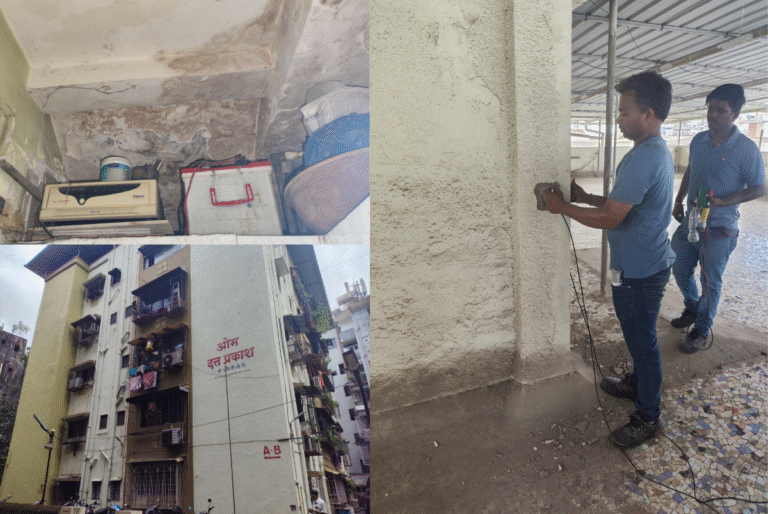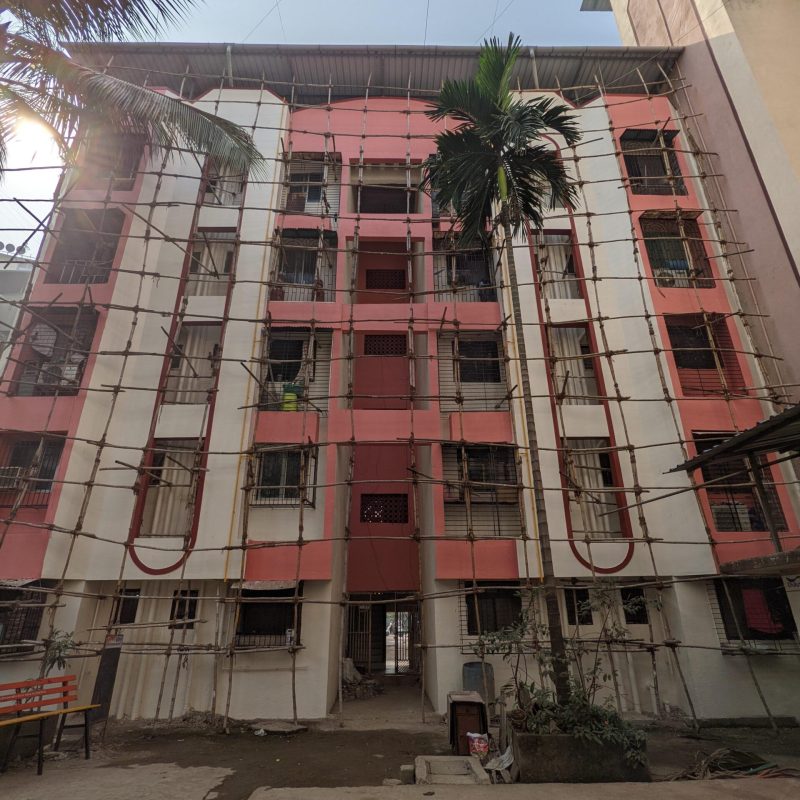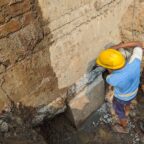A Complete Guide by Aavishkaar Consultants

Redevelopment is one of the fastest-growing trends in urban housing renewal, especially in cities like Mumbai, Thane, Pune, and Navi Mumbai, where old structures are deteriorating rapidly. Redevelopment gives residents an opportunity to upgrade their living standards with better safety, modern amenities, and increased property value. However, redevelopment is not just a construction decision—it is a legal and technical process governed by strict regulations.
Before redevelopment can even begin, certain legal guidelines, structural reports, and government approvals are mandatory. Failure to follow these procedures can lead to project delays, legal disputes, financial losses, and even cancellation of redevelopment rights.
This comprehensive article by Aavishkaar Consultants, one of India’s most trusted structural auditing and redevelopment advisory firms, covers all the legal guidelines, NOCs, surveys, reports, and permissions required before starting a redevelopment project.
1.What Is Redevelopment and Why Is It Regulated?
Redevelopment is the process of demolishing old, dilapidated, or underutilized buildings and reconstructing them with improved infrastructure. In India, most redevelopment projects are managed by housing societies seeking better living conditions, enhanced safety, and increased FSI benefits.
However, redevelopment is governed under state development control regulations, housing society acts, municipal laws, and national building codes.
Why is redevelopment regulated?
- To ensure structural safety.
- To prevent legal disputes among residents and developers.
- To enforce transparency in financial and contractual terms.
- To protect the rights of tenants and homeowners.
- To ensure compliance with building norms, fire safety, and environmental laws.
2. Importance of Legal and Structural Compliance
Before redevelopment begins, every building must undergo legal, technical, and structural evaluation. Skipping this stage poses risks such as:
- Cancellation of redevelopment approval
- Denial of Occupancy Certificate
- Possibility of legal action from residents
- Structural failures during or post-construction
- Insurance claim rejection in case of accidents
Compliance ensures:
✅ Safety assurance
✅ Government approval
✅ Legal protection
✅ Resident confidence
✅ Smooth project execution
3. Key Legal Guidelines Governing Redevelopment in India
Redevelopment is regulated under multiple acts and authorities. The most important legal bodies include:
|
Authority |
Regulation / Act |
|
Municipal Corporation |
Development Control and Promotion Regulations (DCPR) |
|
MHADA / SRA |
Guidelines for cessed & slum redevelopment |
|
Maharashtra Co-operative Societies Act, 1960 |
Residential Society Regulations |
|
National Building Code |
Safety Standards |
|
RERA |
Transparency & contractual compliance |
|
Fire Department |
Fire NOC for redevelopment |
|
MOEF & Pollution Control Board |
Environmental Clearances (if applicable) |
4. Documents Required Before Redevelopment

Before issuing tenders or approaching developers, housing societies must prepare the following documents:
Mandatory Documents List:
- Registration Certificate of Society
- Property Card and 7/12 Extract
- Conveyance Deed / Title Certificate
- Approved Building Plans
- Structural Audit Report from Authorized Consultant
- Occupancy Certificate (OC) or Building Completion Certificate
- List of Members and Carpet Area Details
- Society Resolution for Redevelopment (Passed in AGM)
- Intimation to Registrar of Co-operative Societies
Tip: All documents must be updated and legally verified.
5. Mandatory Reports and Surveys
Redevelopment projects require multiple reports to assess building life, safety, and feasibility.
Key Reports Required:
- Structural Audit Report (Most Critical)
- Non-Destructive Test (NDT) Report
- Soil Investigation Report
- FSI and Redevelopment Feasibility Report
- Existing Building Condition Report
- Fire Safety Audit
These reports form the foundation for legal approval and redevelopment planning.
6. Structural Audit – The Core Legal Requirement
A structural audit is a government-mandated process that assesses a building’s health using scientific tests.
Why is it mandatory?
- Identifies hidden structural damages.
- Determines whether a building is safe for repairs or needs redevelopment.
- Basis for issuing redevelopment permissions.
- Protects society from liability in case of structural failure.
Aavishkaar Consultants conduct in-depth audits using advanced tools like:
- Rebound Hammer Test
- Ultrasonic Pulse Velocity Test
- Core Testing
- Carbonation Test
Outcome: A detailed report that certifies whether redevelopment is required.
7. Role of Statutory Authorities and NOCs
Multiple government departments need to grant No Objection Certificates (NOCs) before redevelopment.
Important NOCs:
|
Department |
Purpose |
|
Fire Brigade |
Ensures fire safety systems |
|
Storm Water & Drainage |
Checks water discharge and drainage |
|
Traffic & Coordination |
Evaluates impact on road and traffic |
|
Tree Authority |
Removal or transplantation of trees |
|
MHADA (if applicable) |
Approval for cessed buildings |
Without these NOCs, redevelopment cannot proceed
8. Redevelopment Agreement and Consent of Residents
Redevelopment cannot start unless a minimum of 51% (or as per local law) residents approve the project.
Legal Steps:
- Conduct General Body Meeting (GBM)
- Appoint certified Project Management Consultant (PMC)
- Approve tendering and developer selection process
- Sign Redevelopment Agreement and Development Rights Agreement (DRA)
This ensures transparency and safeguards resident interests.
9. Government Policies and DCPR Regulations
Each region has specific Development Control and Promotion Regulations (DCPR) that dictate:
- FSI entitlement
- Building height restrictions
- Setback rules
- Parking requirements
- Amenity space allocation
Example: In Maharashtra, DCPR 2034 governs redevelopment in cities like Mumbai and Thane.
10. Step-by-Step Approval Process for Redevelopment
Step 1: Conduct Structural Audit
Step 2: Society Passes Redevelopment Resolution
Step 3: Appoint Legal & Technical Consultant (like Aavishkaar)
Step 4: Prepare Feasibility & Demand Survey
Step 5: Obtain NOCs from Authorities
Step 6: Submit Proposals to Municipal Corporation
Step 7: Receive Intimation of Disapproval (IOD)
Step 8: Comply with IOD Conditions
Step 9: Obtain Commencement Certificate (CC)
Step 10: Begin Demolition & Reconstruction
11. Why Choose Aavishkaar Consultants for Redevelopment Reports
Aavishkaar Consultants simplify the entire technical and legal process by offering end-to-end redevelopment consulting services.
Our Key Services Include:
- Government-approved Structural Audit
- Feasibility Reports and Redevelopment Planning
- NDT Testing and Life Assessment
- Legal Compliance Support
- Documentation and Approvals
- PMC and Project Monitoring
With decades of experience and 1000+ audited buildings, Aavishkaar ensures absolute compliance and safety.
Visit www.structuralauditor.in to book an audit today.
Lorem ipsum dolor sit amet, consectetur adipiscing elit. Ut elit tellus, luctus nec ullamcorper mattis, pulvinar dapibus leo.
Conclusion
Redevelopment is a life-changing opportunity for housing societies, but only when done within the legal and structural framework set by authorities. Skipping mandatory reports or ignoring compliance can result in delays, penalties, or building failures.
A certified structural audit, proper documentation, NOCs, and feasibility assessment are the pillars of successful redevelopment.
Aavishkaar Consultants ensure that every redevelopment project starts on a strong foundation of legal accuracy, structural safety, and government compliance.
If you are planning redevelopment, your first step should be booking a structural audit.
👉 Visit www.structuralauditor.in today and safeguard your redevelopment journey.



That’s a really eye-opening post! Before any redevelopment, knowing the legal guidelines and required reports is absolutely crucial. Understanding permissions, approvals, structural assessments, and compliance ensures safety and peace of mind for everyone involved. At SMCA Chess Academy, we believe in building well — whether it’s our chess skills or the places people call home. Kudos to the author for breaking it down so clearly